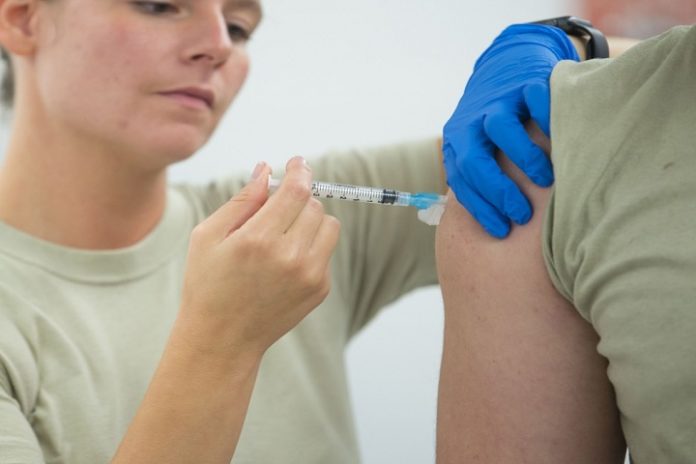An accompanying study suggests COVID-19 infection protects against re-exposure
New candidate DNA vaccines offer protection against SARS-CoV-2 in rhesus macaques and another companion study suggests COVID-19 infection protects against re-exposure. Both studies were published today in the journal Science.
The global COVID-19 pandemic has made the development of a vaccine a top biomedical priority. Two critical questions influencing vaccine development is whether candidate vaccines prevent infection with COVID-19, and whether individuals who have recovered from COVID-19 are protected against re-exposure.
“In these two studies, we demonstrate in rhesus macaques that prototype vaccines protected against SARS-CoV-2 infection and that SARS-CoV-2 infection protected against re-exposure,” said senior author Dan H. Barouch, MD, PhD, Director of the Center for Virology and Vaccine Research at Beth Israel Deaconess Medical Center (BIDMC).
In the first study, the team demonstrated that six candidate DNA vaccines induced neutralizing antibody responses and protected against SARS-CoV-2 in rhesus macaques. Researchers developed a series of candidate DNA vaccines against variants of the Spike protein, a key antibody target of the novel coronavirus.
More than a month after the initial infection, second exposure to the virus demonstrated near-complete protection against the virus in these macaques
The researchers immunized 25 adult rhesus macaques with the investigational vaccines, and 10 animals received a sham control. Vaccinated animals developed neutralizing antibodies against the virus. Three weeks after a booster vaccination, all 35 animals were exposed to the virus. Follow-up testing revealed dramatically lower viral loads in vaccinated animals compared to the control group. Eight of the 25 vaccinated animals demonstrated no detectable virus at any point following exposure to the virus, and the other animals showed low levels of virus. Moreover, higher antibody levels were linked to lower viral loads.
In the second study, after exposing nine adult macaques to the SARS-CoV-2 virus, the researchers monitored viral levels as the animals recovered. All nine animals recovered and developed antibodies against the virus. More than a month after the initial infection, second exposure to the virus demonstrated near-complete protection against the virus in these macaques.
“Our findings increase optimism that the development of COVID-19 vaccines will be possible,” said Barouch. “Further research will be needed to address the important questions about the length of protection, as well as the optimal vaccine platforms for a SARS-CoV-2 vaccines for humans.”


